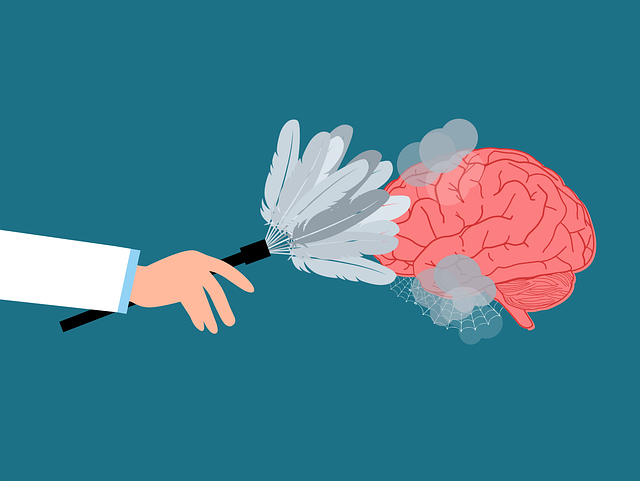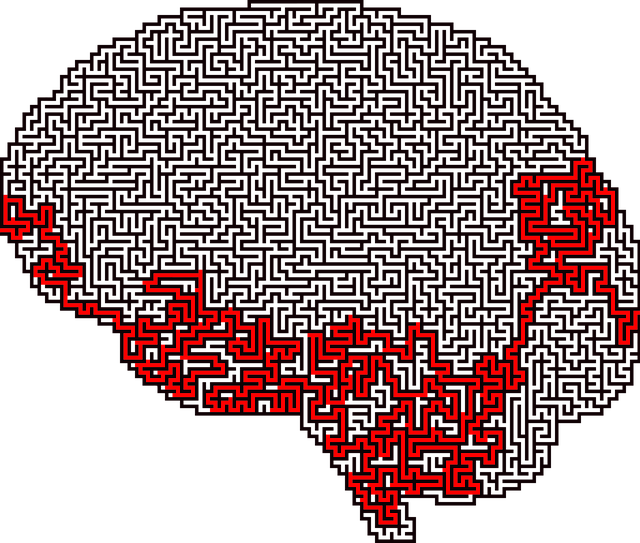Lakewood EMDR Certified Therapy offers a powerful, evidence-based approach to crisis intervention by combining Eye Movement Desensitization and Reprocessing (EMDR) techniques with compassion cultivation. This method not only stabilizes individuals during severe distress but also addresses underlying causes, enhances resilience, and promotes self-compassion. Through triggered event identification, needs assessment, and tailored communication strategies, therapists help clients navigate complex emotions. Post-crisis care includes specialized support through journaling exercises and professional guidance, fostering emotional healing and preventing future burnout. This comprehensive approach aligns with Mental Health Policy initiatives, ensuring individuals receive respectful, unique care tailored to their needs.
In times of crisis, effective intervention can make a world of difference. This comprehensive guide explores evidence-based strategies through the lens of Lakewood EMDR Certified Therapy, offering a structured approach to support individuals in acute distress. We delve into understanding the core principles of crisis intervention, assessing triggers and unmet needs, implementing immediate support techniques, and fostering resilience post-crisis. By adhering to these guidelines, professionals can provide compassionate, effective care.
- Understanding Crisis Intervention: A Lakewood EMDR Certified Therapy Approach
- Assessing the Crisis: Identifying Triggers and Needs
- Implementing Evidence-Based Strategies: Techniques for Immediate Support
- Post-Crisis Care: Fostering Resilience and Long-Term Well-being
Understanding Crisis Intervention: A Lakewood EMDR Certified Therapy Approach

Crisis intervention is a critical aspect of mental health support, offering immediate assistance during times of severe distress or traumatic events. It aims to stabilize individuals and prevent further deterioration. Understanding crisis intervention involves recognizing its role in empowering people to navigate challenging situations. Lakewood EMDR Certified Therapy, for instance, integrates Eye Movement Desensitization and Reprocessing (EMDR) techniques with compassionate cultivation practices, a powerful approach to helping clients heal from trauma and build inner strength.
This therapeutic method goes beyond addressing symptoms by focusing on the underlying causes of crisis. It encourages individuals to develop coping strategies, enhance resilience, and cultivate compassion towards themselves and others. By combining EMDR’s ability to process traumatic memories with compassion cultivation practices, therapists facilitate a transformative journey. This holistic approach not only supports mental health but also aligns with broader initiatives like Mental Health Policy Analysis and Advocacy, promoting comprehensive care that respects the dignity and unique needs of each individual.
Assessing the Crisis: Identifying Triggers and Needs

When assessing a crisis situation, understanding the triggers and needs of the individual is paramount. This initial step forms the foundation for effective intervention strategies. A Lakewood EMDR Certified Therapist plays a crucial role in facilitating this process by creating a safe, non-judgmental space for clients to express their emotions and experiences. Through open-ended questions and active listening, therapists can help individuals identify specific triggers—be they past traumas, recent stressors, or internalized beliefs—that have contributed to the crisis.
Moreover, assessing needs is an integral part of this process. This includes recognizing immediate safety concerns, as well as longer-term goals for emotional healing. By integrating communication strategies tailored to individual preferences and strengths, therapists can enhance mood management and support clients in navigating complex emotions. The goal is to empower individuals with coping mechanisms that foster resilience and facilitate their journey towards emotional healing processes.
Implementing Evidence-Based Strategies: Techniques for Immediate Support

In crisis intervention, implementing evidence-based strategies is paramount for providing immediate and effective support. Techniques such as Lakewood EMDR Certified Therapy have proven to be game changers in mental health care. This therapeutic approach, backed by extensive research, enables professionals to help individuals process traumatic memories and reduce distress symptoms swiftly. By integrating these evidence-based methods, crisis responders can offer robust assistance without delay.
Beyond individual therapy, public awareness campaigns development plays a crucial role in early intervention. Educating the community about mental health issues fosters an environment where individuals feel empowered to seek help during crises. Additionally, healthcare provider cultural competency training is essential to ensure that support is tailored to diverse populations, promoting inclusive and effective crisis intervention strategies.
Post-Crisis Care: Fostering Resilience and Long-Term Well-being

Post-crisis care is a vital component of effective crisis intervention strategies. Following an intense or traumatic event, individuals often experience acute distress and uncertainty about their future well-being. Therefore, providing continuous support and guidance is essential to foster resilience and promote long-term mental wellness.
Lakewood EMDR certified therapy offers specialized post-crisis care, integrating evidence-based techniques like journaling exercises from a Mental Wellness Journaling Guidance perspective. These activities encourage individuals to process their emotions, reflect on the crisis, and identify coping mechanisms that enhance emotional healing processes. By combining these practices with professional support, individuals can develop strategies for burnout prevention, ensuring they regain a sense of control and build resilience for future challenges.
In conclusion, effective crisis intervention requires a multifaceted approach that combines understanding, assessment, and evidence-based strategies. The Lakewood EMDR Certified Therapy approach, as discussed in this article, provides a comprehensive framework for addressing crises promptly and effectively. By identifying triggers and needs through thorough assessment, implementing immediate support techniques, and offering post-crisis care, individuals can build resilience and achieve long-term well-being. Embracing these strategies equips professionals with the tools to make a meaningful impact during challenging times.














